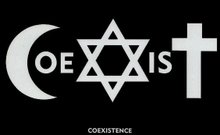The Stories We Tell Ourselves
By Brian McLaren
Any society or civilization at any given time lives by a dominant framing story, a story that gives its common life a coherent shape and direction. That story will no doubt evolve and adapt over time, for better or for worse, borrowing from or reacting to the stories of its neighbors. To understand a society, then, and certainly to change it, we must make its covert framing story more overt and realize its power—sometimes awe-inspiring, sometimes awful.
For example, if our framing story tells us that we humans are godlike beings with godlike privileges—intelligent and virtuous creatures outside a limited environment of time and space, without potentially fatal flaws—we will have no reason to acknowledge or live within limits, whether moral or ecological. Similarly, if our framing story tells us that the purpose of life is for individuals or nations to accumulate an abundance of possessions and to experience the maximum amount of pleasure during the maximum number of minutes of our short lives, then we will have little reason to manage our consumption.
But if our framing story tells us that we are free and responsible creatures in a creation made by a good, wise, and loving God, and that our Creator wants us to pursue virtue, collaboration, peace, and mutual care for one another and all living creatures, and that our lives can have profound meaning if we align ourselves with God’s wisdom, character, and dreams for us, then our society will take a radically different direction, and our world will become a very different place.
In this light, our growing list of global crises, together with our inability to address them effectively, gives us strong evidence that our world’s dominant framing stories are failing. We might say that they are too weak. They don’t provide strong enough inspiration and motivation to transcend the greed, class conflict, sexual irresponsibility, ethnic hatred, religious bigotry, or nationalistic militarism that threatens us. We could also say that our framing stories are too strong—but strong in a misguided way, in that they actually catalyze and energize those same self-destructive forces. Either way, we can safely conclude that our societal systems, driven by their framing stories, are perfectly designed to yield the results we are now getting. If we attempt to change the results without changing the system, starting with its framing story, we will fail. Consider how our current dominant story is failing us:
The Prosperity Dysfunction. Our story does not guide us to respect environmental limits, but instead inspires our pursuit of as much resource use and waste production (also known as economic growth) as possible, as fast as possible. As a result, we burn through nonrenewable resources without concern for their eventual disappearance, draw down renewable resources faster than they can be replenished, and produce more waste products than our environment can absorb, manifesting a host of negative symptoms, some realized, others largely invisible to us as yet. Rapid and extravagant resource use (with corresponding waste production) is so profitable for some people that they can avoid or remain in denial about most of these negative symptoms for a very long time. In fact, their “success” makes it highly improbable that they will ever be willing to acknowledge the unsustainability of their way of life.
The Equity Dysfunction. Our framing story does not lead us to work for the common good. Instead, it legitimizes the growing gap between rich and poor in a variety of ways. For example, the story may imply that God has blessed and favored the rich and powerful, or that the poor and vulnerable are lazy and irresponsible and therefore are getting what they deserve. All the while the bellies of the poor and vulnerable ache from hunger, and their children die of treatable diseases. Every social grouping—national, religious, ethnic, tribal, political, social, or educational—is drawn into a vortex of rich/poor conflict. Each group becomes a competing us/them faction that seeks advantage for “us,” not a common good for all.
The Security Dysfunction. Our framing story does not lead these competing factions to reconcile peacefully. Instead we find, nested in the larger framing story shared by both rich and poor, a huge bank of patriotic and religious stories that celebrate how “redemptive violence” has helped good people (“us”) to defeat evil people (“them”) throughout history. Thus when push comes to shove, good people and evil people alike trust violence as the way to peace, and our framing story squelches the search for creative, peaceful alternatives. When more and more nations (or religious or ethnic militias) arm themselves with more and more lethal weapons—not to mention when some groups acquire biological, chemical, or nuclear weapons—everyone feels less secure, and every regional conflict contains the seeds of terrifying escalation, resulting in an increasingly anxious global society. Gradually, the world becomes locked in a vicious cycle of tension between an anxious global empire of the rich and an angry global terrorist revolution of the poor.
ALL ATTEMPTS TO resolve these systemic crises—the prosperity crisis of the planet, the equity crisis of poverty, and the security crisis of peacemaking—fail because they fail to address the fourth crisis, the spirituality crisis of purpose. Tragically, the framing stories that program and drive our societal machinery toward suicide are too frequently aided and abetted by our world’s religions and the various stories they tell. Instead of inspiring us with a framing story of hope (true good news), our religions more often camouflage existing destructive narratives in various religious disguises. They preach a far-reaching covert curriculum of fear and violence; they teach a coherent and comprehensive global “orthodoxy” of greed, self-interest, religious/ethnic/ cultural supremacy, and struggle for domination and conquest.
It is at this profound and pivotal level where Jesus confronts our suicidal system. His essential message, which he called the good news of the kingdom of God, confronts this suicidal societal machinery and seeks to transform it from a suicidal system into a sacred global community. It does so by providing a radical alternative to the dominant framing story that currently drives human society.
To the prosperity system, Jesus says we are fellow creatures in one global ecosystem, created and sustained by God. Jesus calls us to seek the common good, not simply the selfish interests of our own ego, family, religion, race, nation, or species.
To the equity system, Jesus’ good news says we are neighbors in one global community, related to each other as fellow citizens in God’s kingdom. He calls us to seek justice for all so that God’s compassionate will is done on earth as in heaven.
To the security system, Jesus’ message says we are siblings in God’s family, called to reconciliation, not competition or domination. He calls us to be active peacemakers who respond to our enemies through love and service, not victors who eliminate them through revenge or preemptive violence.
Jesus communicates this alternative framing story of the kingdom of God in a variety of ways. First, it comes through parables, artistic works of short fiction that seek to abduct the human imagination from the dominant, destructive, and confining framing story currently at work in human society, and to free human beings to imagine and pursue new possibilities. Second, it comes through dramatic enactments called signs and wonders that convey God’s desire to bring peace and health to humanity through healing rather than war. Third, it comes through his ethical teachings, which should be seen not as laws through which one earns hell or heaven, but rather as practices through which people can seek and participate in God’s kingdom.
Perhaps most powerfully of all, Jesus’ liberating message is embodied in his own life and example, in his interactions with people, and most decisively in his crucifixion and resurrection. As he is misunderstood, arrested, falsely accused, tortured, and crucified, he manifests an unflinching attitude of forgiveness, enacting the essential drama of his story: The evil of human beings may break boundary after boundary, but the grace of God is always wider, deeper, bigger, and more powerful than human wickedness. God’s grace will surely triumph over human evil, and the story of the resurrection celebrates the power of faith to triumph over the machinery of societal suicide.
JESUS CHALLENGED people in his day to stop believing the empire’s empty promises and stop fearing its threats through a brilliant strategy. First he lured its dark machinery into the light, so to speak, so it could be seen for what it was, exposed, named, rejected, and defected from. After praying “your will be done” in the garden of Gethsemane, after choosing self-sacrifice over self-protection, he walked like a lamb into the middle of the forest, so the wolves would come out of the shadows and circle around him. Then he stretched out his neck, as it were, inviting them to pounce, and they did. Ironically, though, as he exposed his own neck, he also exposed their vicious wolfishness and in that way he sabotaged them, defeated them, rendering them ugly and incredible. After all, they could no longer claim to be agents of peace and promise after torturing and killing a good and peaceful man so violently and shamefully.
Just as the wolfish powers breathed a sigh of satisfaction at nailing yet another challenger to a cross, Jesus’ quiet but real resurrection validated to his disciples that the liberating king was not defeated, but rather was on the move, quietly, at the margins, where all revolutions begin. His resurrection told them that Caesar’s muscle couldn’t conquer God’s vulnerability, that Caesar’s spears couldn’t conquer God’s forgiving heart, and that Caesar’s whips and nails and crosses couldn’t overcome God’s way of love and reconciliation.
So in the shadow of Caesar’s ruthless kingdom, witnesses of Jesus’ resurrection could never live by Caesar’s framing story again. It had become disgusting to them, despicable, pathetic, exposed. Liberated from Caesar’s false promises and fear, they chose to live in the framing story of a new Lord, in his “in-but-not-of-this-world” kingdom, as citizens in his “kingdom from another place,” with headquarters not in Rome but in the heart of God. They withdrew their trust from the domesticating and domesticated narratives and counternarratives that energized the empire, and they chose instead to believe Jesus’ wild, untamed good-news story about the kingdom of God—as a story of hope that could frame and transform a better future.
Perhaps now, with them, we can begin to envision what it would mean for us to confront the suicide machine of our world in the way of Jesus, to expose it and deconstruct it, to intercept its trajectory and turn it to a better way, to reclaim its potential for ends more in line with their original creation. Perhaps we can see ourselves in a new light too, not armed with an ideology but infused with a new imagination, part of a peaceful insurgency seeking to expel a suicidal occupying regime, gardeners working with God to tend the holy ecosystem so it continues to unfold anew day after new day. We can be agents of a secret revolution of hope, a global movement unleashing coordinated, well-planned acts of unterror and healing, producers in a new economy of love—an economy so radical that old terms like capitalism and communism seem like two sides of a confederate coin left over from a fading and discredited regime. Doing so will require one radical, irreplaceable thing in us: faith—faith that the old narrative of domination is suicidal, and that a new story (good news, an invitation to reconciliation) is available if we will only rethink everything and believe it.
Brian McLaren, board chair of Sojourners/ Call to Renewal, is the author of The Secret Message of Jesus and A Generous Orthodoxy, among other books.





























